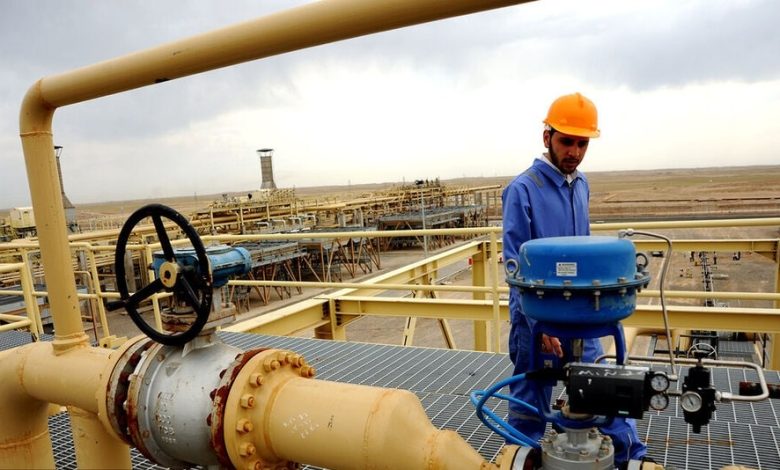JCPOA and Gas Shortage: Can Tehran Actually Use Fossil Fuels as Leverage?

Written by
Mahmoud Hakamian
Negotiations to revive the 2015 nuclear deal between Iran and six world powers have been going on for months without any result. The Iranian regime has long been violating its commitments under the terms of the agreement, which is formally known as the Joint Comprehensive Plan of Action (JCPOA).
Iran’s ruling theocracy desperately needs a way out of its international isolation, as the country’s economic crunch fuels people’s hatred of the regime after four decades of oppression. Yet Iran’s officials and state media never miss an opportunity to brag about their “powerful position” in the negotiations, claiming that Western powers need the deal, not the regime.
Since the beginning of the war in Ukraine, the Iranian regime has exploited the crisis to promote its own energy resources as a potential alternative for Europe, after sanctions removed Russian oil and gas from Western markets.
“Global developments and the energy crisis in the U.S. and Europe indicate Iran is in no hurry to revive the JCPOA. Those who need an agreement the most are the Western parties,” Keyhan daily boasted on August 26. The outlet is considered a mouthpiece for Iran’s supreme leader.
But Tehran’s hook has been clinging to chaos and trouble since the regime bet on the wrong horse by supporting the Russian invasion. Recently, it was announced that Russia would sell its gas to Iran.
“About 75 to 95 billion cubic meters of gas are left in Russia’s hands. The gas export giant, sanctioned by Europe these days due to the invasion of Ukraine, is now forced to sell a large amount of its gas in any possible way or to burn and destroy it. Meanwhile, Iran, the world’s second-largest owner of gas reserves, has announced that it is ready to import gas from Russia!” the state-run Aftab News wrote on August 20.
Can Iran Replace Russia in the Global Gas Market?https://t.co/OcuDoRvjL8
— NCRI-FAC (@iran_policy) May 11, 2022
With 33.4 trillion cubic meters of natural gas reserves, Iran could be considered the best alternative to Russian gas, but not if Tehran can’t exploit and export its gas resources.
Due to the regime’s decades of negligence and incompetent policies, Iran can hardly produce enough gas to supply its domestic needs of 800 million cubic meters, let alone export gas to Western countries.
The gas exploitation infrastructures are seriously damaged and it will take billions of dollars of investments and years of work to increase the gas production rate. The Iranian regime’s warmongering policies and support of terrorism have resulted in more sanctions, leaving no room for foreign investments.
“Obsolescence of equipment, old production processes, lack of research in industrial units, using simple equipment and household appliances with low efficiency and incorrect culture of energy use in the construction sector, and low technologies of cars produced in the country are essential factors of irrational energy consumption,” the state-run Shana News agency warned in this regard in 2014.
In September 2021, Ali Mobini Dehkordi, CEO of Iran Fuel Consumption Optimization Company, told the state-run Tasnim that Iran would be one of the world’s largest gas importers in 10 years.
Iran’s energy officials attribute the low gas production rate to domestic consumption. On the contrary, very little produced gas is exported to Iran’s neighboring countries. Regime officials have repeatedly bragged about shipping fuel to Lebanon.
While the regime ships fuel and gas to Lebanon and Iraq, Iranians must endure cold weather in fall and winter. The power plants in Iran are also forced to use cheap fuel oil (Mazut), which adds to Iran’s air pollution crisis.
In other words, Iranians pay for the regime’s bad policies. The ayatollahs’ warmongering exacerbates Iran’s economic woes; shipping gas to other countries leaves people defenseless in winter while forcing them to breathe polluted air.
All of this raises the question of how long the Iranian regime can carry on with its destructive policies while also exploiting the “global energy crisis” in its bid to extract new concessions from the JCPOA’s Western signatories.
These hollow power exhibitions shouldn’t fool anyone. The Iranian regime faces a volatile society that is rapidly approaching explosion due to the economic crisis and social injustice. The Iranian regime badly needs a deal and more money to fund its illicit activities, so it plunders every last penny from Iranians and auctions their resources. Its implicit offer of fuel exports to the West is a bogus gesture. Tehran is on its knees. Therefore, it should not be granted more concessions.

